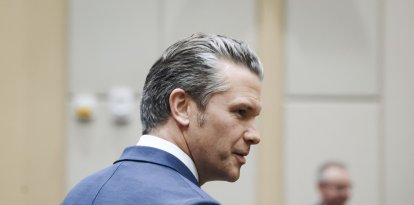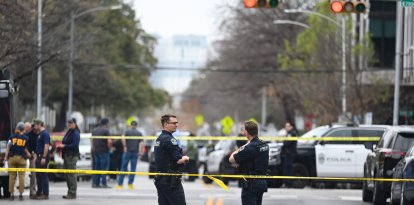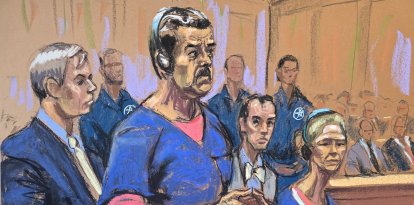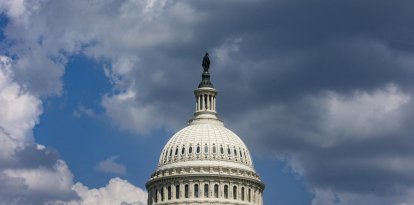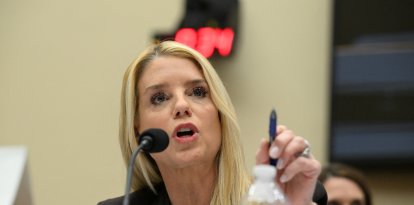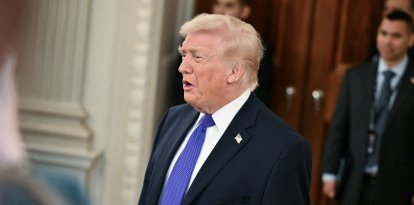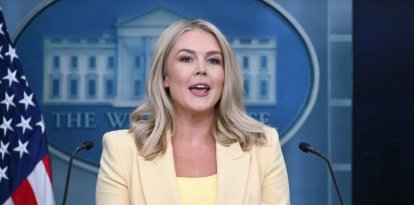Trump announced he will halt funding to South Africa over killings and assaults on white farmers
The president said the measure will be in place until an investigation into the matter has been completed. Last month, South African President Cyril Ramaphosa signed a bill that would make it easier for the state to expropriate land.

Demonstration against violence targeting white farmers in South Africa.
President Donald Trump recently announced he would halt funding to South Africa, arguing that the country "is confiscating land and treating certain classes of people VERY BADLY," he posted on social media, in a clear reference to white farmers.
"The United States won't stand for it, and we will act. Also, I will be cutting off all future funding to South Africa until a full investigation of this situation has been completed!" the U.S. president added.
According to U.S. government data, Washington granted South Africa $440 million in aid in 2023.
South Africa responded to the words of the U.S. president. In a statement, the Ministry of Foreign Affairs of the African country expressed: "We trust President Trump's advisers will make use of the investigative period to attain a thorough understanding of South Africa's policies within the framework of a constitutional democracy."
South African president enacted law to facilitate land expropriation
Last month, South African President Cyril Ramaphosa enacted a law that will make it easier for the state to expropriate land in the public's interest.
According to the law, the aim is to address racial disparities in land ownership that persist three decades after the demise of apartheid in 1994.
However, this is not the first time Trump has spoken out against South Africa. During his previous term, he stated that the United States would investigate that country's large-scale killing of white farmers and violent land grabs.
Last month, Ramaphosa said he was not concerned about his country's relations with Trump. He added that he had a dialogue with the U.S. president after his election victory expressing his desire to work together.
Public calls to assassinate white farmers
It should be noted that entrepreneur Elon Musk, one of Trump's closest advisors, was born in South Africa and has been critical of the Ramaphosa government, especially after in 2023, Julius Malema, leader of the far-left Democratic Alliance party, called to murder white farmers at a public event.
After Malema's words, attacks against white farmers increased.
On that occasion, the Afriforum association stated that 95% of the murders and aggressions against white farmers remain unanswered by the justice system.
Is it genocide?
News site The Spectator reported at the end of December 2023 that a year earlier, more than 300 farm attacks and 50 murders had been recorded.
The British media outlet referred to a particularly brutal incident in Mpumalanga, in the east of the country, when farmer Theo Bekker, 79, was hit over the head with an iron bar. His throat was slashed and he bled to death. Bekker's wife, Marlinda, was tied up and had a bag put over her head, but managed to survive the attack.
Torture and rape are common in such attacks, added The Spectator, noting that even open Afrikaans Bibles have been left on dismembered bodies.
On many occasions, the attacks are perpetrated by gangs of criminals, who turn up drugged and drunk on remote farms, heavily armed, often at the end of the month, when employers have wads of cash at home ready to pay workers.
While South Africa has the third-highest murder rate in the world and killings against white farmers generate great concern, the fact remains that it cannot be considered genocide, the British media outlet said.
The Spectator noted that South Africa can see 450 murders in a week. Some of these victims are white farmers, but they are far from the only ones who lose their lives at the hands of violent criminals.
Whites make up about 8% of the population and are the victims of about 2% of murders.
Dr. Gregory Stanton, founder of Washington-based Genocide Watch, told The Spectator that despite the tragedy of South Africa's farm killings, there is no evidence of a planned extermination. He added, however, that these are "opportunistic crimes": violent acts by workers over labor disputes with their employees, or else simply attacks carried out by thugs looking for money.














